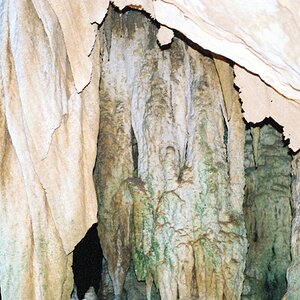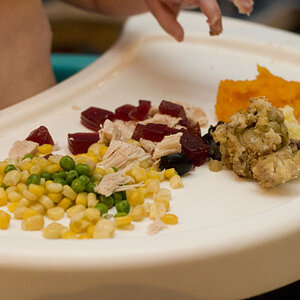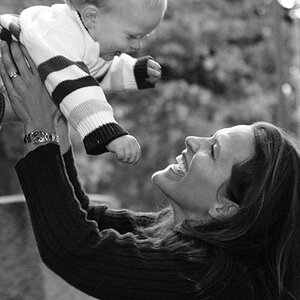I noticed after much researching that film has the potential to rival even the most expensive digital SLR cameras. Right now I am using a cheap Canon PowerShot SX150 IS. There are those like Daido Moriyama who have chosen to use compact cameras over the bulky alternatives. While such devices are very useful, it certainly is not ideal for every shot. I have been looking for a good all-around SLR camera a long time now. Choosing one is not so straightforward for me. I would love to use medium or large format. Thus far it looks very expensive compared to 35mm. Some cameras easily exceed $30k each. $1,500.00 is my maximum budget. The cost matters less to me than the quality it is capable of. I would not mind buying used equipment. What would you personally recommend? My head is still spinning after two years of looking. lol
Navigation
Install the app
How to install the app on iOS
Follow along with the video below to see how to install our site as a web app on your home screen.

Note: This feature currently requires accessing the site using the built-in Safari browser.
More options
You are using an out of date browser. It may not display this or other websites correctly.
You should upgrade or use an alternative browser.
You should upgrade or use an alternative browser.
Choosing a Digital or Film SLR Camera
- Thread starter Branden
- Start date
- Joined
- Apr 9, 2009
- Messages
- 41,401
- Reaction score
- 5,706
- Location
- Iowa
- Website
- kharrodphotography.blogspot.com
- Can others edit my Photos
- Photos OK to edit
:shock:
The quality of photographs produced is mostly a function of the photographer's skill and knowledge, rather than what camera/lens was used.
The quality of photographs produced is mostly a function of the photographer's skill and knowledge, rather than what camera/lens was used.
- Joined
- Jul 3, 2004
- Messages
- 3,714
- Reaction score
- 531
- Location
- Here N There
- Website
- img24.photobucket.com
:shock:
The quality of photographs produced is mostly a function of the photographer's skill and knowledge, rather than what camera/lens was used.
Yet when bad things happen.... ummm you know, like when someone uses a cheap tripod that breaks..... it's the hardware's fault.
OP so are you deciding between medium/large format film vs DSLR? Well to me, "analog" and digital is really the matter of spending less up front and a lot later, or a lot upfront and less later.
Speaking from 35mm perspective, the cameras are not expensive, but developing the film, printing or scanning cost add up very quickly depending on how much you shoot. Digital will cost much more but the keep-up cost is low.
It really depends on why you are considering these. If you want to learn about photography, I'd recommend film. For production efficiency, digital is better.
If you get the more modern 35mm SLR models, they can use today's lens (Nikon), so you don't have to worry about dumping everything when you eventually decide to go with DSLR.
BrianV
TPF Noob!
- Joined
- Nov 26, 2012
- Messages
- 806
- Reaction score
- 123
- Can others edit my Photos
- Photos NOT OK to edit
You can pick up a lightly used film SLR with more than enough lenses to get started with for a lot less than $1500. For that amount, pick up a Nikon F100 film camera, a fast 50/1.4, midrange zoom, and a crop format DSLR. More than enough to get a start on learning.
On film cameras- do you want all-manual, Autofocus+program mode, built-in motor, etc. Best to efine what you want to take pictures of, and how involved you want/need t be with the setup.
Time is best spent buying "Something" close and start using it rather than two years of deciding the perfect setup.
On film cameras- do you want all-manual, Autofocus+program mode, built-in motor, etc. Best to efine what you want to take pictures of, and how involved you want/need t be with the setup.
Time is best spent buying "Something" close and start using it rather than two years of deciding the perfect setup.
Last edited:
:shock:
The quality of photographs produced is mostly a function of the photographer's skill and knowledge, rather than what camera/lens was used.
Agreed.
Josh66
Been spending a lot of time on here!
- Joined
- Oct 31, 2007
- Messages
- 14,593
- Reaction score
- 1,239
- Location
- Cedar Hill, Texas
- Can others edit my Photos
- Photos NOT OK to edit
So, where would you say you are at - on the skill/knowledge spectrum? There's nothing wrong with being a beginner - it's just that knowing where you're at now, or where you would like to be will likely influence our recommendations.:shock:
The quality of photographs produced is mostly a function of the photographer's skill and knowledge, rather than what camera/lens was used.
Agreed.
:shock:
The quality of photographs produced is mostly a function of the photographer's skill and knowledge, rather than what camera/lens was used.
Yet when bad things happen.... ummm you know, like when someone uses a cheap tripod that breaks..... it's the hardware's fault.
OP so are you deciding between medium/large format film vs DSLR? Well to me, "analog" and digital is really the matter of spending less up front and a lot later, or a lot upfront and less later.
Speaking from 35mm perspective, the cameras are not expensive, but developing the film, printing or scanning cost add up very quickly depending on how much you shoot. Digital will cost much more but the keep-up cost is low.
It really depends on why you are considering these. If you want to learn about photography, I'd recommend film. For production efficiency, digital is better.
If you get the more modern 35mm SLR models, they can use today's lens (Nikon), so you don't have to worry about dumping everything when you eventually decide to go with DSLR.
I said medium or large format camera models are usually much more expensive than 35mm models. That is why I have not went that direction.
You can pick up a lightly used film SLR with more than enough lenses to get started with for a lot less than $1500. For that amount, pick up a Nikon F100 film camera, a fast 50/1.4, midrange zoom, and a crop format DSLR. Moe than eough to get a start on learning.
On film cameras- do you want all-manual, Autofocus+program mode, built-in motor, etc. Best to efine what you want to take pictures of, and how involved you want/need t be with the setup.
Time is best spent buying "Something" close and start using it rather than two years of deciding the perfect setup.
The F100 is a camera I am considering as a matter of fact. I am not really interested in the perfect setup. The post I wrote probably did come across that way however.
So, where would you say you are at - on the skill/knowledge spectrum? There's nothing wrong with being a beginner - it's just that knowing where you're at now, or where you would like to be will likely influence our recommendations.:shock:
The quality of photographs produced is mostly a function of the photographer's skill and knowledge, rather than what camera/lens was used.
Agreed.
Me personally? I would still be considered a beginner in my mind. Definitely not a novice. Nobody special really. Just someone with OCD who is trying to make choices. Narrowing down my chaotic list to where this thread would actually make more sense has so far not been so simple. lol There is so much to choose from. I was hoping someone who had once been in my shoes could figure out what I meant then get me going in the right direction. : / sigh It is my fault for the confusion.
TCampbell
Been spending a lot of time on here!
- Joined
- Mar 31, 2012
- Messages
- 3,614
- Reaction score
- 1,556
- Location
- Dearborn, MI
- Can others edit my Photos
- Photos OK to edit
The image quality from a 35mm SLR will easily rival that of a digital camera and the initial cost to buy the camera is considerably lower. But there's a catch:
I did some price shopping and came up with a price of about $15/roll for film AND processing (developing and printing.) While going out with a DSLR and shooting a few hundred photos on a weekend event would be nothing, doing the same thing with an SLR film camera would cost in the neighborhood of $60 per hundred shots. ... suddenly film isn't so cheap.
You could shoot B&W and do your own developing and printing, but now you need darkroom equipment. The enlarger is probably the most expensive thing... you'd need chemicals (cheap) papers (relatively cheap), developing tank and spools (cheap), trays (cheap), a darkroom clock, and... oh yeah, an extremely light-tight room to work in with red safelights and it would be a huge plus if the room had plumbing with a sink and drain. That last little bit can kill it for a lot of people who don't have a suitable place to setup a darkroom (even a temporary darkroom.)
I did some price shopping and came up with a price of about $15/roll for film AND processing (developing and printing.) While going out with a DSLR and shooting a few hundred photos on a weekend event would be nothing, doing the same thing with an SLR film camera would cost in the neighborhood of $60 per hundred shots. ... suddenly film isn't so cheap.
You could shoot B&W and do your own developing and printing, but now you need darkroom equipment. The enlarger is probably the most expensive thing... you'd need chemicals (cheap) papers (relatively cheap), developing tank and spools (cheap), trays (cheap), a darkroom clock, and... oh yeah, an extremely light-tight room to work in with red safelights and it would be a huge plus if the room had plumbing with a sink and drain. That last little bit can kill it for a lot of people who don't have a suitable place to setup a darkroom (even a temporary darkroom.)
Josh66
Been spending a lot of time on here!
- Joined
- Oct 31, 2007
- Messages
- 14,593
- Reaction score
- 1,239
- Location
- Cedar Hill, Texas
- Can others edit my Photos
- Photos NOT OK to edit
The image quality from a 35mm SLR will easily rival that of a digital camera and the initial cost to buy the camera is considerably lower. But there's a catch:
I did some price shopping and came up with a price of about $15/roll for film AND processing (developing and printing.) While going out with a DSLR and shooting a few hundred photos on a weekend event would be nothing, doing the same thing with an SLR film camera would cost in the neighborhood of $60 per hundred shots. ... suddenly film isn't so cheap.
You could shoot B&W and do your own developing and printing, but now you need darkroom equipment. The enlarger is probably the most expensive thing... you'd need chemicals (cheap) papers (relatively cheap), developing tank and spools (cheap), trays (cheap), a darkroom clock, and... oh yeah, an extremely light-tight room to work in with red safelights and it would be a huge plus if the room had plumbing with a sink and drain. That last little bit can kill it for a lot of people who don't have a suitable place to setup a darkroom (even a temporary darkroom.)
If you don't print everything you shoot (how many digital shooters do that?), it can be pretty cheap. Probably still cheaper than digital, including the necessary developing/scanning equipment.
TCampbell
Been spending a lot of time on here!
- Joined
- Mar 31, 2012
- Messages
- 3,614
- Reaction score
- 1,556
- Location
- Dearborn, MI
- Can others edit my Photos
- Photos OK to edit
The image quality from a 35mm SLR will easily rival that of a digital camera and the initial cost to buy the camera is considerably lower. But there's a catch:
I did some price shopping and came up with a price of about $15/roll for film AND processing (developing and printing.) While going out with a DSLR and shooting a few hundred photos on a weekend event would be nothing, doing the same thing with an SLR film camera would cost in the neighborhood of $60 per hundred shots. ... suddenly film isn't so cheap.
You could shoot B&W and do your own developing and printing, but now you need darkroom equipment. The enlarger is probably the most expensive thing... you'd need chemicals (cheap) papers (relatively cheap), developing tank and spools (cheap), trays (cheap), a darkroom clock, and... oh yeah, an extremely light-tight room to work in with red safelights and it would be a huge plus if the room had plumbing with a sink and drain. That last little bit can kill it for a lot of people who don't have a suitable place to setup a darkroom (even a temporary darkroom.)
If you don't print everything you shoot (how many digital shooters do that?), it can be pretty cheap. Probably still cheaper than digital, including the necessary developing/scanning equipment.
Except the price I quoted is for sending out to a lab for processing and they WILL print everything you shoot on a drugstore sized print (usually 4x6"). You don't get to pick which frames to print or not print unless you do your own developing and printing.
Josh66
Been spending a lot of time on here!
- Joined
- Oct 31, 2007
- Messages
- 14,593
- Reaction score
- 1,239
- Location
- Cedar Hill, Texas
- Can others edit my Photos
- Photos NOT OK to edit
You don't get to pick which frames to print or not print unless you do your own developing and printing.
One more reason to do it yourself, other than the substantial cost savings and superior quality control...
Thank you gentlemen for your posts so far. Your opinions based on your expertise is helping. Here are some additional details to better clarify:
My curiosity in general about photography grew during an art college class. A spark of interest that has since went ablaze. Portrait and landscape photography were among my favorites to look at. Film too particularly fascinated me. Not only due to how it is done, yet also discovering there those who still prefer film over the newer digital alternatives. This all caused me to want to do it myself. So I grabbed my digital compact camera then started shooting. I would change the ISO, contrast and et cetera on the fly. Nothing impressive I know. It was still nonetheless what the device would allow me to manually set myself in order to better learn the craft without a better suited camera.
I live at home while working a low-income full-time job and attend college. Buying a nice all-around camera body is feasible for me to do; just so long as it is not too much. I would like to dive into medium to large format film at some point in the future. A good 35mm digital or film SLR camera will keep me satisfied for now. From what I have read, many experts recommend most beginners start with a film camera like the F2, FM10 or F100. That still left me wondering if there was something else slightly better. Maybe I could find a digital body with a manual lens. One thought led to another. Yes, I am majorly overcomplicating things. I now have the desire to shoot both film plus digital. I figure one has strengths that the other does not. Yet I cannot see myself forking out the cash for a nice digital SLR camera when I am unable to utilize all of its functions I paid for. Good grief! Why can I not just simply choose something?! Can you blame me with so much available? lol
My curiosity in general about photography grew during an art college class. A spark of interest that has since went ablaze. Portrait and landscape photography were among my favorites to look at. Film too particularly fascinated me. Not only due to how it is done, yet also discovering there those who still prefer film over the newer digital alternatives. This all caused me to want to do it myself. So I grabbed my digital compact camera then started shooting. I would change the ISO, contrast and et cetera on the fly. Nothing impressive I know. It was still nonetheless what the device would allow me to manually set myself in order to better learn the craft without a better suited camera.
I live at home while working a low-income full-time job and attend college. Buying a nice all-around camera body is feasible for me to do; just so long as it is not too much. I would like to dive into medium to large format film at some point in the future. A good 35mm digital or film SLR camera will keep me satisfied for now. From what I have read, many experts recommend most beginners start with a film camera like the F2, FM10 or F100. That still left me wondering if there was something else slightly better. Maybe I could find a digital body with a manual lens. One thought led to another. Yes, I am majorly overcomplicating things. I now have the desire to shoot both film plus digital. I figure one has strengths that the other does not. Yet I cannot see myself forking out the cash for a nice digital SLR camera when I am unable to utilize all of its functions I paid for. Good grief! Why can I not just simply choose something?! Can you blame me with so much available? lol
Last edited:
Josh66
Been spending a lot of time on here!
- Joined
- Oct 31, 2007
- Messages
- 14,593
- Reaction score
- 1,239
- Location
- Cedar Hill, Texas
- Can others edit my Photos
- Photos NOT OK to edit
I now have the desire to shoot both film plus digital.
That's not really such a bad thing. I use both, but more film (a lot more) than digital. Digital is just kind of blasé for me...I don't have anything against it, but it's just sort of ... meh. Not as much fun for me.
BrianV
TPF Noob!
- Joined
- Nov 26, 2012
- Messages
- 806
- Reaction score
- 123
- Can others edit my Photos
- Photos NOT OK to edit
>Just someone with OCD who is trying to make choices.
>Yet I cannot see myself forking out the cash for a nice digital SLR camera when I am unable to utilize all of its functions I paid for.
>I would still be considered a beginner in my mind. Definitely not a novice.
Nikon FE2. Aperture-preferred automatic with full manual over-ride. Interchangeable screens, three available. Takes the MD-12 motor drive if you want to add one. DOES require battery to operate, commonly available and last for years in the camera.
Not so many features and accessories, WIll set shutter-speed when on Auto, Aperture/shutter speed visible in viewfinder. Inexpensive. The FM3A does all this does, has mechanical shutter which operates when battery dies. Basically the same camera, but goes for a lot more money.
>Yet I cannot see myself forking out the cash for a nice digital SLR camera when I am unable to utilize all of its functions I paid for.
>I would still be considered a beginner in my mind. Definitely not a novice.
Nikon FE2. Aperture-preferred automatic with full manual over-ride. Interchangeable screens, three available. Takes the MD-12 motor drive if you want to add one. DOES require battery to operate, commonly available and last for years in the camera.
Not so many features and accessories, WIll set shutter-speed when on Auto, Aperture/shutter speed visible in viewfinder. Inexpensive. The FM3A does all this does, has mechanical shutter which operates when battery dies. Basically the same camera, but goes for a lot more money.
Similar threads
- Replies
- 3
- Views
- 147
- Replies
- 7
- Views
- 504
- Replies
- 10
- Views
- 732
- Replies
- 51
- Views
- 5K
- Replies
- 17
- Views
- 1K

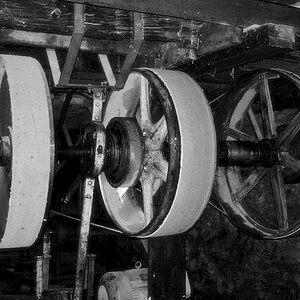
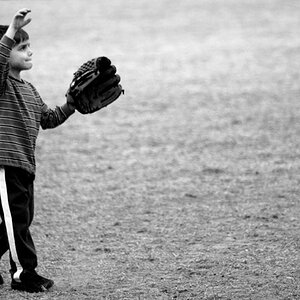

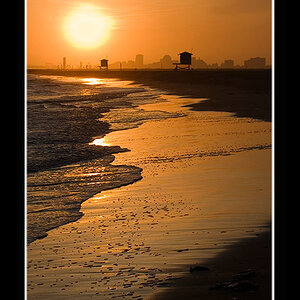
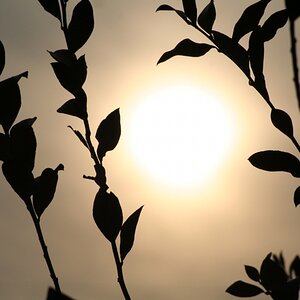
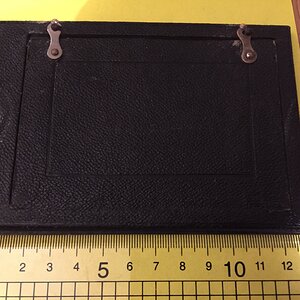
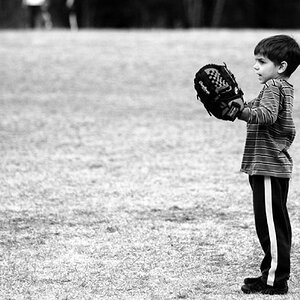
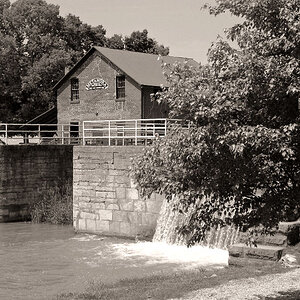
![[No title]](/data/xfmg/thumbnail/36/36662-242aa39f5cb3a23494857864779f669b.jpg?1619737675)
